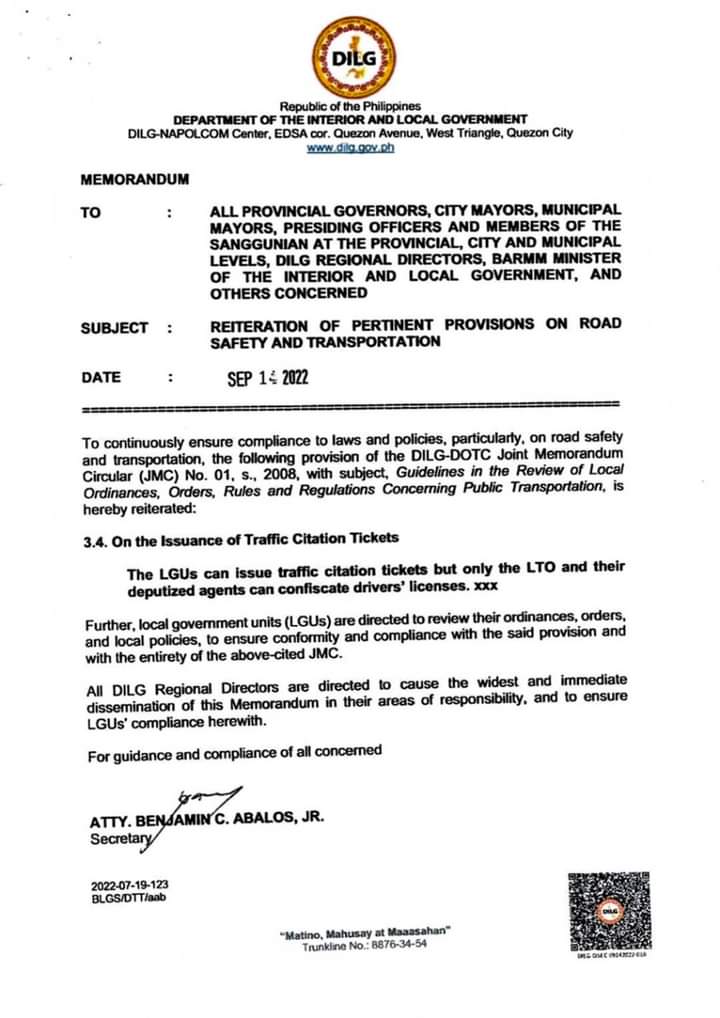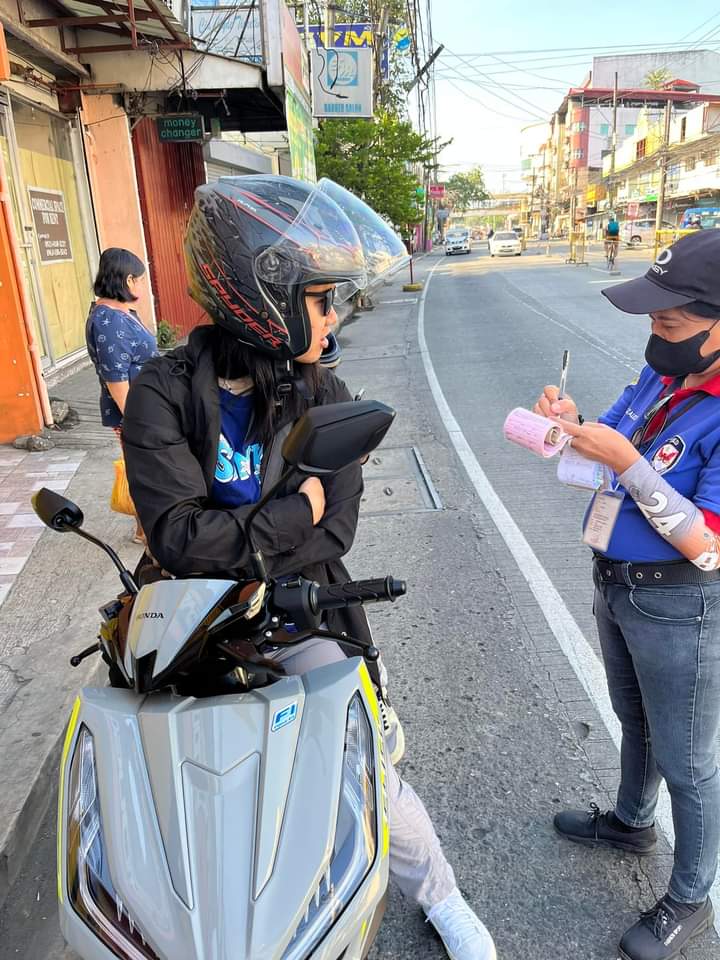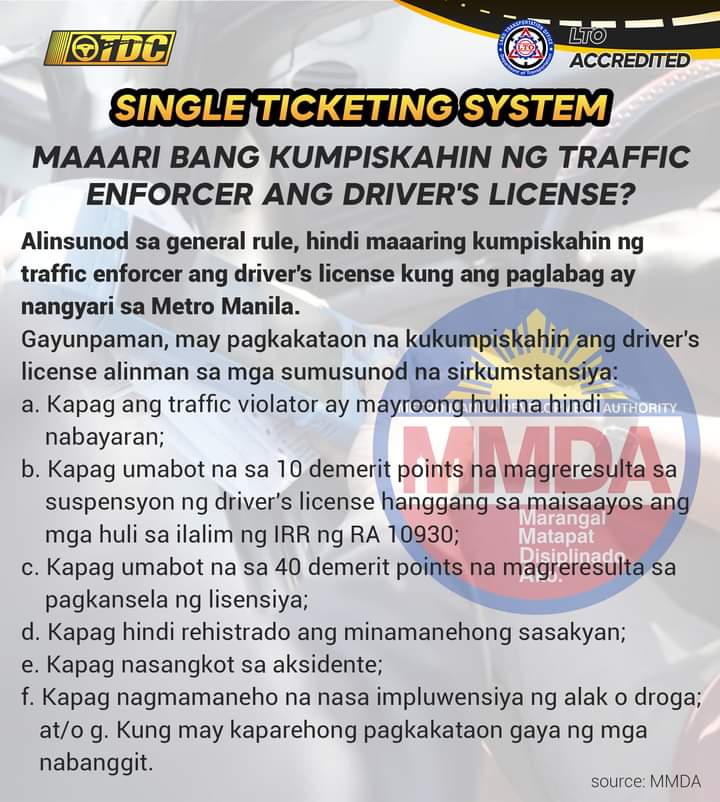In the Philippines, only the Land Transportation Office (LTO) and law enforcement officers deputized by the LTO can confiscate your driver’s license during a normal traffic violation. This authority is granted by Republic Act 4136, known as the Land Transportation and Traffic Code. If an officer who is not deputized by the LTO tries to confiscate your license, you have the right to refuse as they lack the legal authority to do so.
Knowing who has the authority to confiscate your license is crucial to protecting your rights. Without this knowledge, you might unknowingly surrender your license to unauthorized personnel, leading to potential misuse or unnecessary complications. Understanding and adhering to the law ensures that traffic violations are handled properly and your legal rights are respected.
Confiscating Driver’s License: LTO and LTO-Deputized Enforcers
Confiscating a driver’s license means taking it away as a penalty for a traffic violation. This typically occurs when a driver commits a serious offense, such as reckless driving or driving under the influence. According to Republic Act 4136, only the LTO and officers deputized by the LTO have the authority to legally confiscate a driver’s license.
As the primary authority concerning driver’s licenses, the LTO is granted by law the exclusive right to issue, suspend, revoke, or reinstate driver’s licenses. Only the LTO officers and those deputized by the LTO Director can confiscate licenses during traffic violations. This centralized control is intended to maintain consistent enforcement of traffic laws across the country.

Who Can Confiscate Licenses Under Normal Violations
LTO and LTO-deputized enforcers are responsible for regulating and enforcing traffic laws. Though the power to regulate and enforce traffic laws is shared with the local traffic police or enforcers from agencies like the Metropolitan Manila Development Authority (MMDA) or the Philippine National Police – Highway Patrol Group (PNP-HPG), they are specifically banned from confiscating licenses unless directly deputized by the LTO. Only the LTO-deputized enforcers are authorized by the LTO to carry out specific enforcement duties, including confiscating licenses and issuing Temporary Operator’s Permits (TOP). To identify these enforcers, look for their mission orders, which outline their authority, responsibilities, and the power to confiscate licenses; they should also wear official uniforms and carry Office IDs.

The authority to confiscate a driver’s license is limited to the Land Transportation Office (LTO) and its deputized enforcers for several important reasons. These restrictions ensure consistency, legality, and protection of motorists’ rights. Here are the key reasons:
- Uniform Enforcement of Laws: Limiting this authority to the LTO and deputized enforcers ensures that traffic laws are applied consistently across the country.
- Legal Compliance: It guarantees that only trained and authorized personnel handle license confiscations, reducing the risk of unlawful seizures.
- Protection of Motorist Rights: This restriction protects drivers from potential abuse or corruption by unauthorized individuals or local enforcers.
- Centralized Regulation: It allows the LTO to maintain centralized control over the licensing process, ensuring proper documentation and accountability.
- Specialized Training: Deputized enforcers receive specific training to handle traffic violations correctly and legally, which non-deputized officers might lack.
- Clear Accountability: Limiting the authority helps in tracking and holding accountable those who are authorized to confiscate licenses, ensuring transparency.
Limitations of Other Agencies
As mentioned above, other agencies such as the MMDA and local government units (LGUs), though allowed to regulate traffic and issue traffic citations, are not authorized to confiscate licenses without LTO deputization. This limitation ensures a uniform enforcement policy. For instance, the Department of Justice upheld this in a legal opinion, referencing a 1995 case where an MMDA enforcer improperly confiscated a license. LGUs can enact traffic rules, but these must align with national laws and LTO regulations to avoid conflicts.
Here’s a list of the other agencies and their traffic enforcement capabilities for your reference:
- Metropolitan Manila Development Authority (MMDA): Can issue traffic violation tickets, regulate traffic flow, and implement traffic management schemes but cannot confiscate licenses without LTO deputization.
- Philippine National Police – Highway Patrol Group (PNP-HPG): Can enforce traffic laws, conduct checkpoints, and issue traffic citations but requires LTO deputization to confiscate licenses.
- Local Government Units (LGUs): Can pass local traffic ordinances, manage local traffic enforcers, and issue citations; however, they cannot confiscate licenses unless their enforcers are deputized by the LTO.
- Bureau of Fire Protection (BFP): Can regulate traffic during emergencies and issue citations for fire-related violations but lacks the authority to confiscate licenses without LTO deputization.
- Department of Public Works and Highways (DPWH): Manages road maintenance and construction, can issue citations for violations related to road use but cannot confiscate licenses.
- Land Transportation Franchising and Regulatory Board (LTFRB): The LTFRB regulates public transport operations, can issue citations for franchise violations but does not have the authority to confiscate driver’s licenses.
Exemptions
There are certain exemptions to the rule that only the LTO and its deputized enforcers can confiscate a driver’s license. These exceptions primarily involve serious traffic incidents. Here are the key exemptions:

- Traffic Violations Involving Injury or Death: Local traffic officers may confiscate a driver’s license if deputized by the LTO in cases where the violation results in injury or death.
- Special Operations: During specific operations authorized by the LTO, certain officers may be granted temporary authority to confiscate licenses.
- Joint Law Enforcement Operations: In coordinated efforts between the LTO and other law enforcement agencies, officers from those agencies may be temporarily deputized to confiscate licenses.
Video: Can LGU Enforcers Confiscate Your Driver’s License?
For a detailed explanation of the authorities involved in confiscating driver’s licenses during normal violations or to learn whether enforcers from other agencies have the authority to confiscate driver’s licenses in the Philippines, check out this informative video by Atty. Chel Diokno:
@attycheldiokno Hindi pwedeng kunin ng traffic enforcer ng LGU ang driver’s license! #LegalLifeHack #landtransportationoffice #driverslicense #driverslicenseph ♬ Chill Vibes – Tollan Kim
Summary
In short, only the LTO and its deputized officers can confiscate a driver’s license during normal traffic violations. Exceptions are limited to serious cases involving an accident, injury, or death, where local officers may act if deputized by the LTO. Understanding these rules helps motorists protect their rights and ensures that proper procedures are followed in traffic law enforcement.